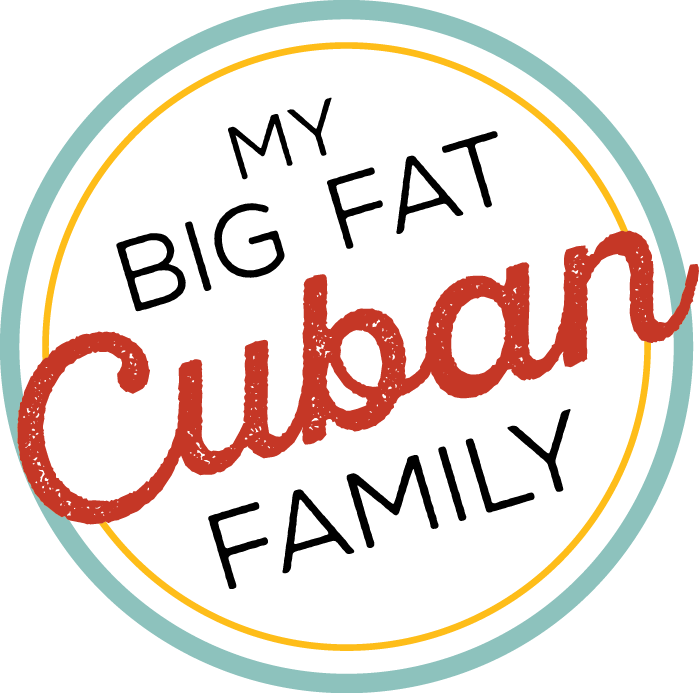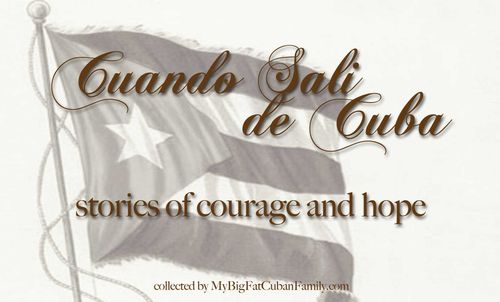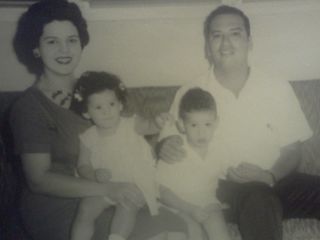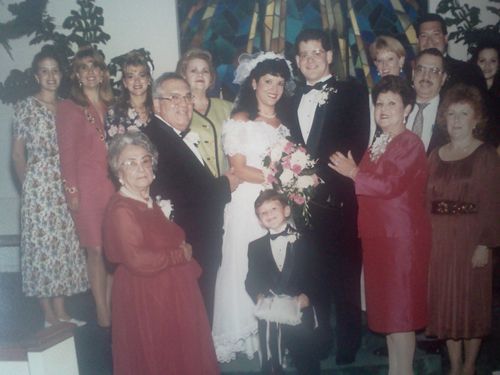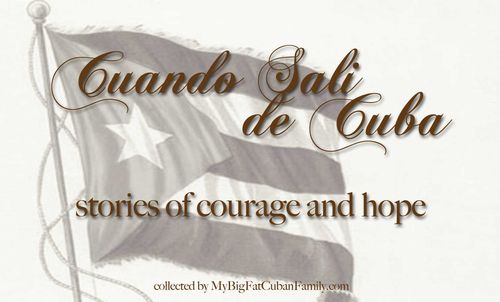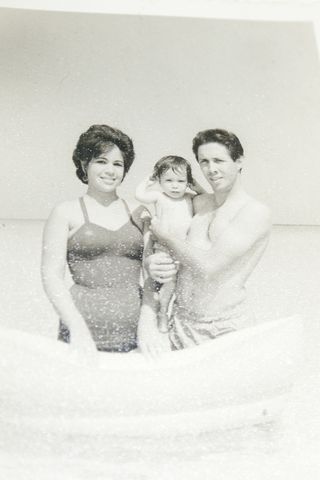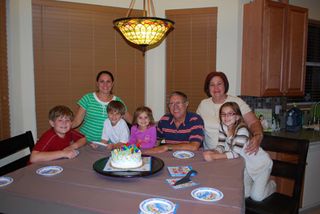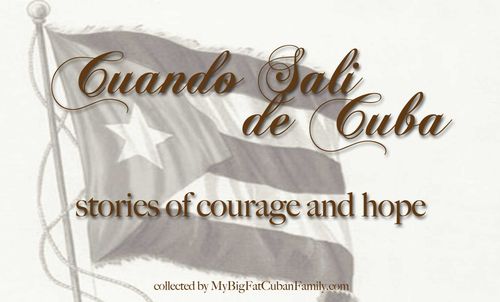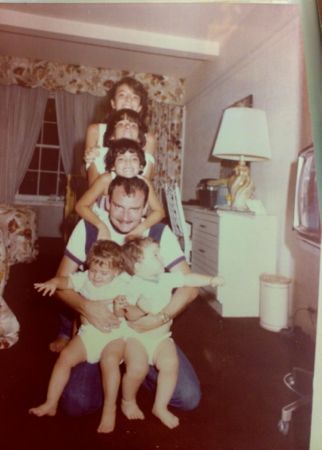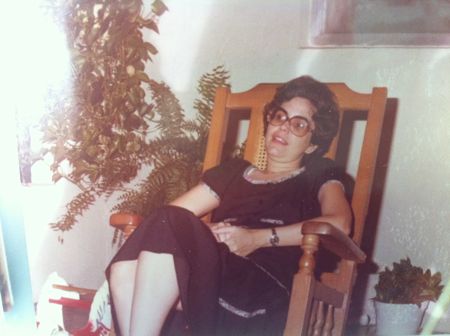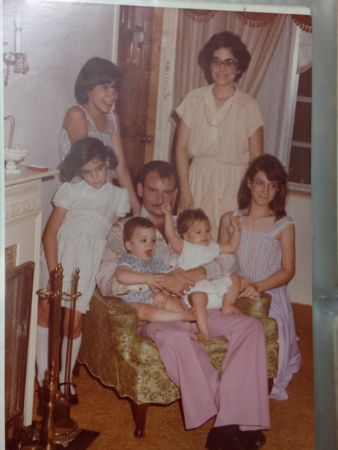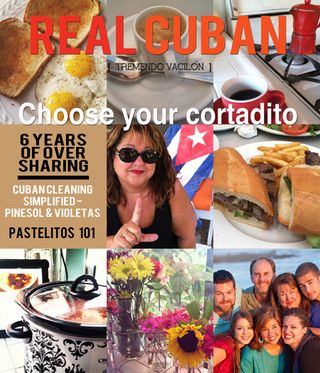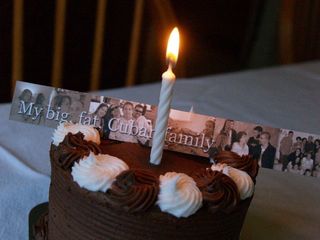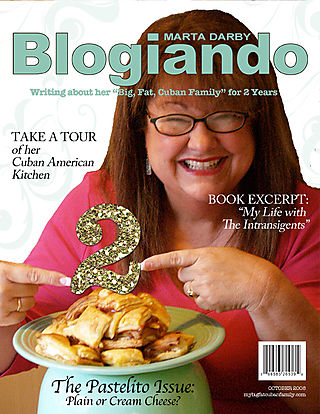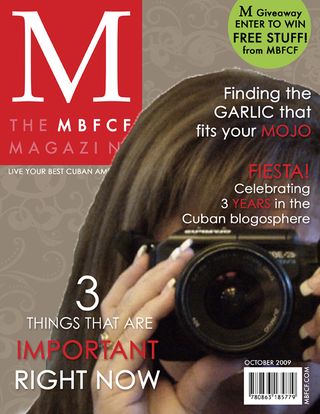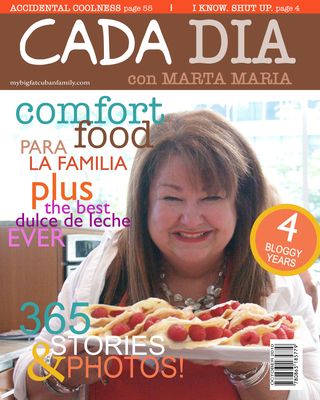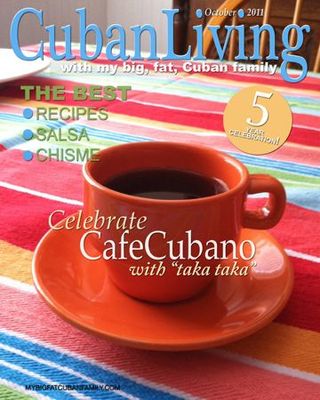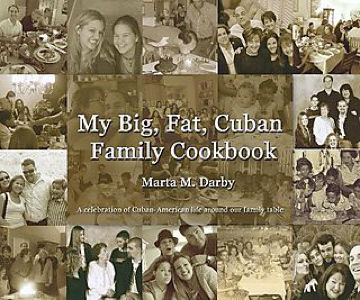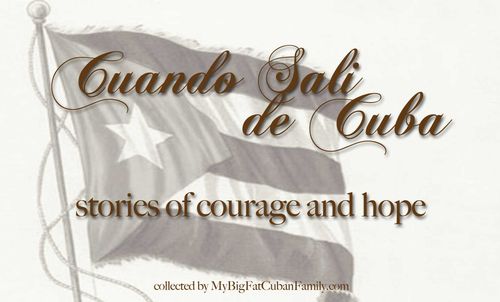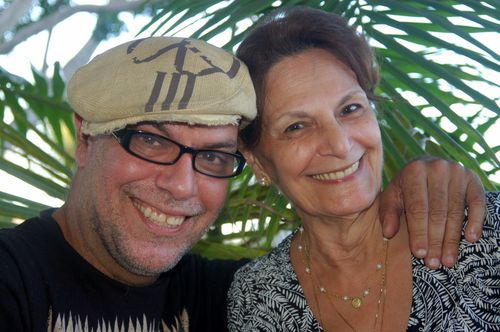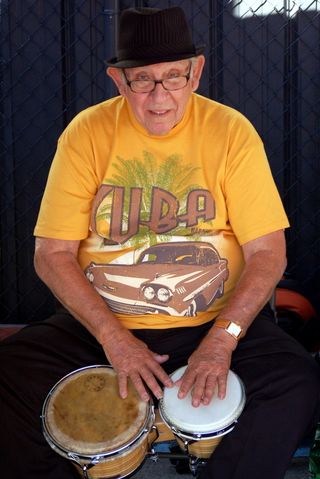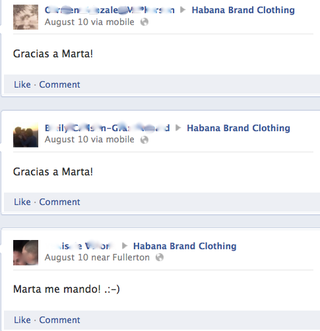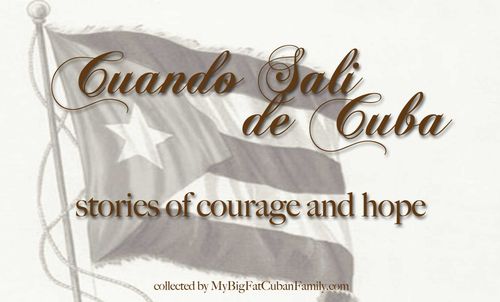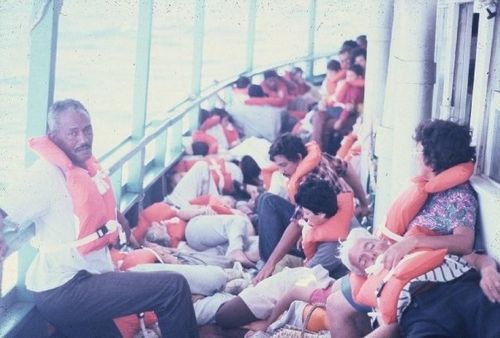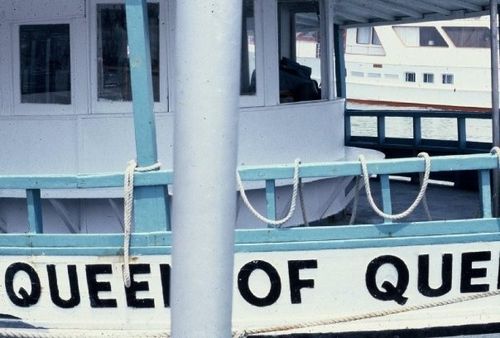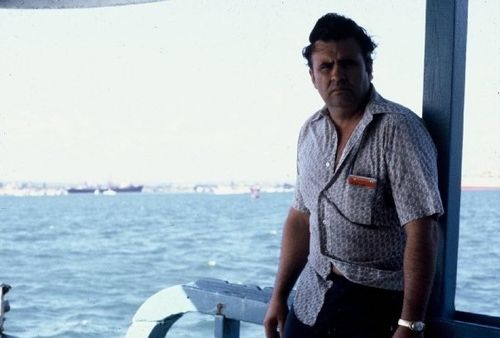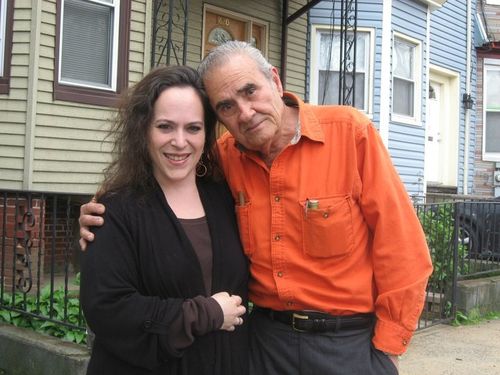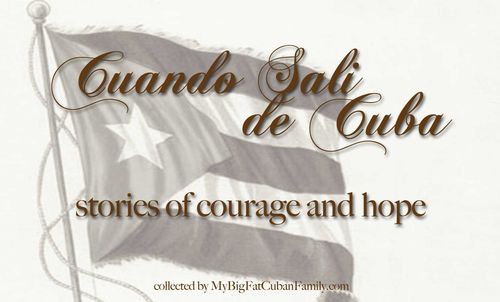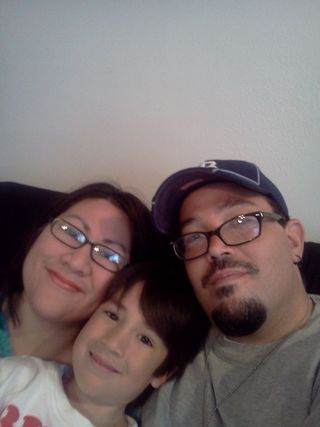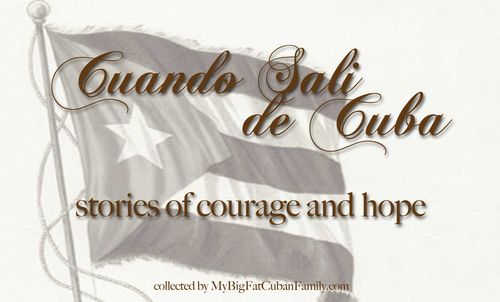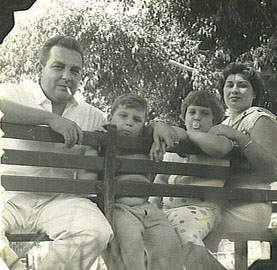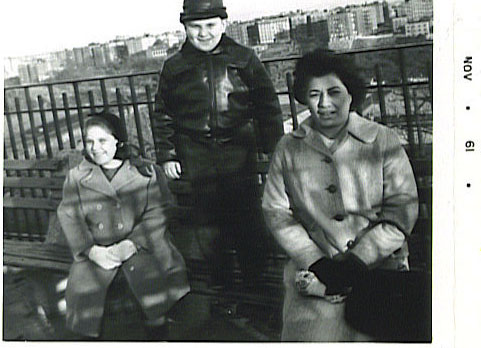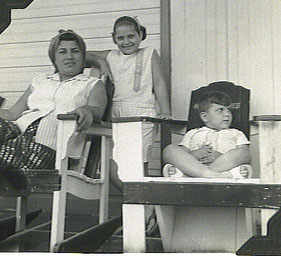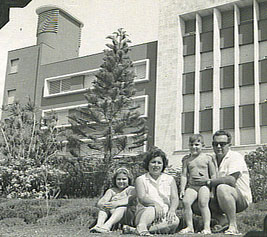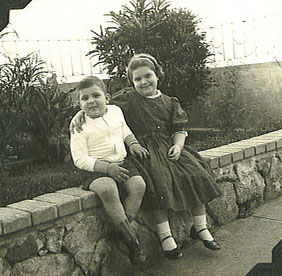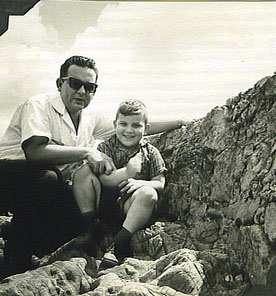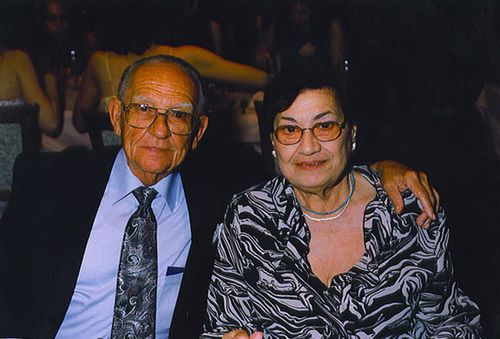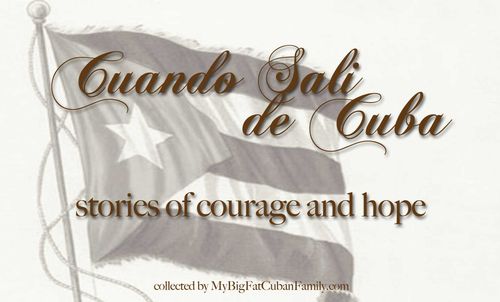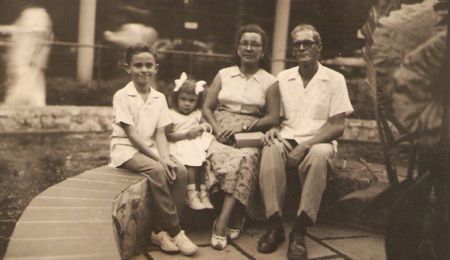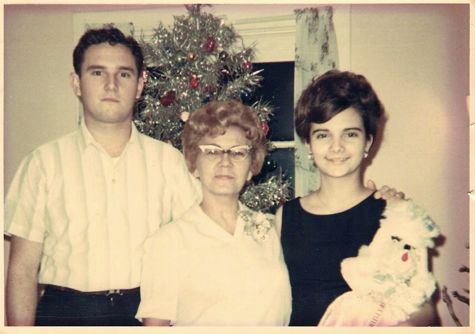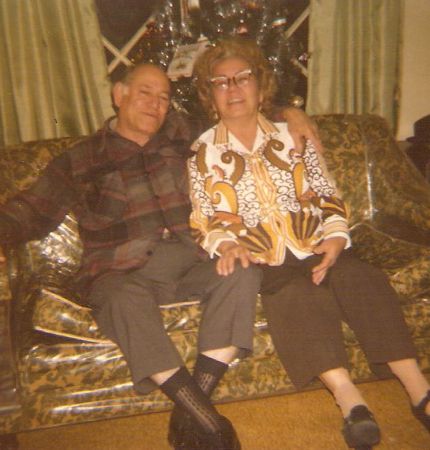Marta here: Carmen tells a beautiful story about her family's many and painful losses after the Cuban Revolution and about their personal triumphs here in America. (Get tissues.)
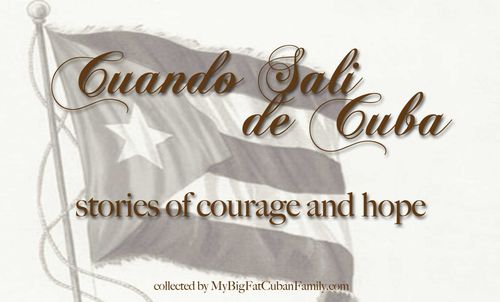
by Carmen McPherson
I was born on July 23, 1960 in Santiago, on the beautiful island of Cuba. My parents were born and raised in Cuba. My father had attended university in America and was employed as a research chemist at an American company in Cuba.
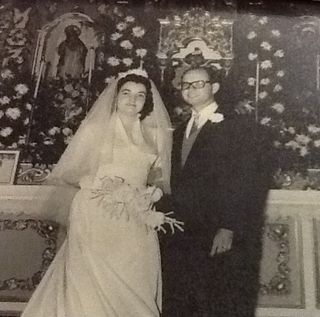
Carmen's parents on their wedding day - February 8, 1959.
My memories of my early childhood are happy and vivid. We visited my grandparents' homes often and my younger brother and I enjoyed having my cousins as playmates during those soon to be very difficult political years.
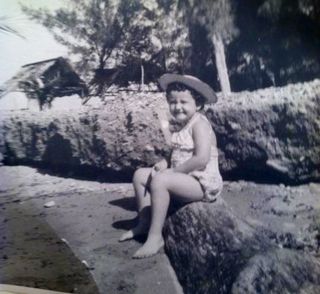
Carmen, at her favorite place to be as a child: the beach in Cuba. This was taken shortly before her family came to the United States.
1966 was a turning point in my life. People we knew started to disappear, seemingly overnight. There were hushed tones by adults and the new ever-present presence of military police.
My father lost his job because we were now declared to be “gusanos" - worms - because we wanted to leave the country.
I loved socializing and my world revolved around my school friends. Even though the school was not a Catholic one, we all wore uniforms. One day the military police came in the middle of the day and we were told that we now had to wear red bandanas in alliance and respect for Castro and the Revolution. That would be my last day attending school. From that point on, I would be home schooled by my father.
Around this same time, my mom told me that we would not be able to attend Mass anymore at our beautiful Catholic Church. Cuba was now under Castro's regime , an atheist country. The priests and nuns were quickly run out of the country.
My father using his chemistry skills was now making everything from soap to shampoo and even ketchup to sell for pesos on the black market. The entire country was now on food stamp rationing.
Castro's militia would conduct surprise inspections of our home and would take inventory of all of our belongings. I remember wondering “why does anyone care how many dolls or dresses I have in my closet?"
Summer 1967. I am at my maternal grandmother’s home when my father suddenly and excitedly appears in the courtyard. He is happy. My mother is crying. I am confused. I hear, "nos vamos." We are leaving. Our lottery visa number had come up!
At first our visas have us leaving and spending some time in Spain, then all of a sudden we get the news that we are going directly to America on a Freedom Flight sponsored by Catholic Charities. I would be turning 7 in July.
August 1967 we spend the night in my mother’s childhood home and the next morning, my aunts give us Spam sandwiches to take with us. We say goodbye and vow to see each other soon. My father gives the last of his pesos to the cab driver and we are at the airport for a very long time.
Our bags are checked and re-checked. Each child is allowed one toy and one bag. I have chosen a doll that is dressed like a bride, my grandmother had used part of my mother’s wedding gown to dress the doll. My brother is holding a red truck.
We sleep on the benches. We are stripped of our gold religious medals. My father has hidden family pictures and sown them in different compartments in his suitcase. My mom's wedding band is allowed to remain on her finger. The bearded soldier has declared it to be "basura" - junk - not worth anything. My brilliant father had purposely tarnished it, hoping that the communists would think exactly that.
I sleep through the plane ride to America. We arrive in Miami and are “processed” at the refugee detention center. My father is handed a square box with a Red Cross on it. It contains toiletries and some American money. Imagine the start of a whole new life... in a box.
We spend a few days there, in rooms with bunk beds and huge cafeteria style open rooms where I watch Bewitched and That Girl with other Cuban kids. None of us understand what s going on.
We are served cold cereal to be eaten in small boxes. How odd is this America? We are served “hot dogs.” After months of eating a diet that consisted mostly of bread and olive oil and spam, the abundance of food is startling. I am shocked that food is thrown in the garbage.
Our paperwork is cleared and we are soon on the way to New York City. We arrive at Kennedy Airport and are met by my uncle, my mother's eldest brother and his family. We will live with them until my father gets on his feet. In the cab ride to Brooklyn, I am wondering why it is not cold or snowing as I have been warned by my aunts in Cuba. It is August 31, 1967.
The next few weeks would be a dizzying ride: new food, hand me down clothes, something called "Vietnam" is making my 18 year old cousin cry because her boyfriend is there. I am hoping we won't have to go there next.
September 1967. My brother and I are walked to a huge public school where we line up in endless lines and are lead into the huge building. My father has pinned this note on us: "I do not speak English." along with our names. Eventually we are put into a bilingual classroom.
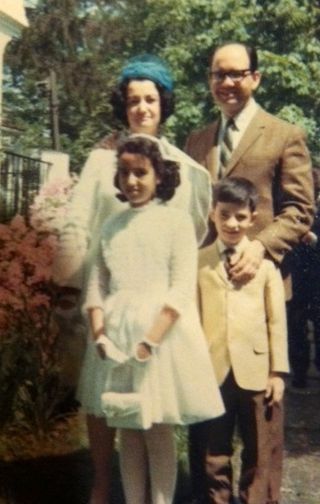
Carmen, on the day of her First Holy Communion with her mom, dad, and brother, Rick. Montclair, New Jersey.
By Christmas, I am reading in English. Reading has opened new doors for me and a place to escape.
My father found work as a research chemist thanks to his American degree and by Summer of 1969, he found a new home for our family in Montclair, New Jersey. Eventually, we would settle in West Orange, New Jersey, where I reside to this day.
I hope and pray that someday my family and I will be able to travel back to a free and Democratic Cuba. I value Education and never take the privilege of voting in a government election or practicing my faith for granted. I am grateful to America for the many opportunities it has offered my family.
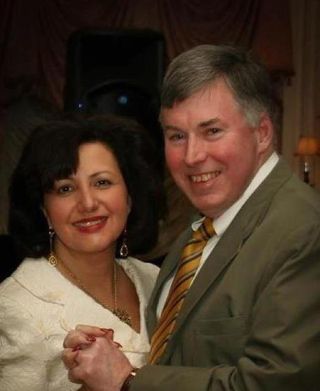
Carmen and her husband, Ken.
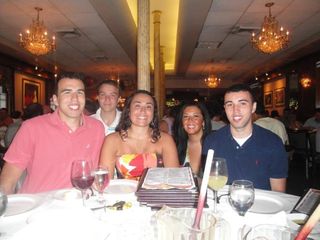
Carmen's five kids (l to r): Russell, Robert, Camille, Coryne and Ken.
I have been happily married to my husband, Ken for 21 years and still think of my late fathers words everytime one of his grandchildren receives a diploma.
He would say, "M'ija, Fidel Castro took everything away from me, except what is in here." - and then he would tap his head.
